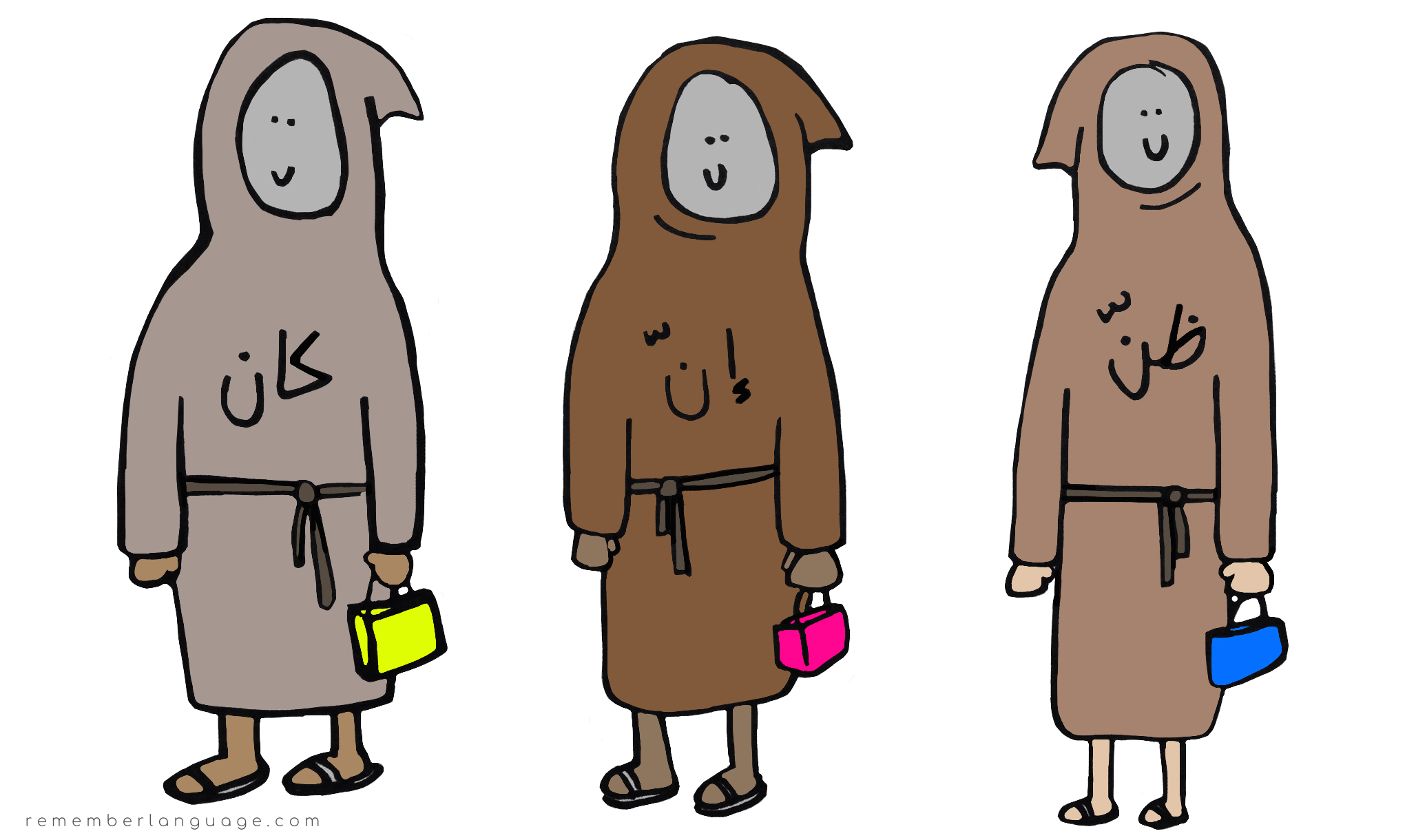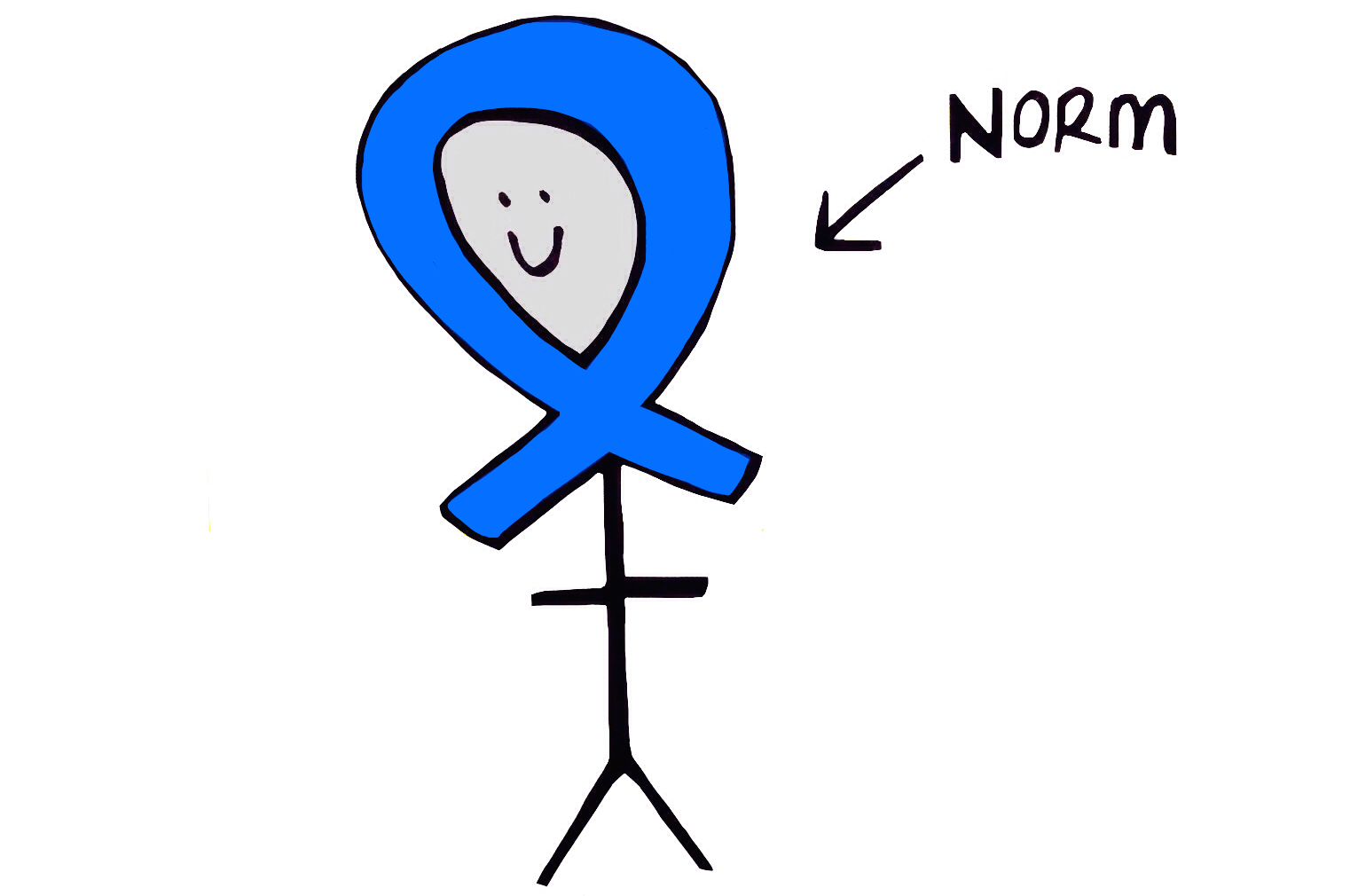[AR] {KAANA (كانَ), INNA (إنَّ), THUNNA (ظنَّ)} AND THEIR SISTERS
THE SISTERHOODS
Just when you thought suitcases and monk outfits were going out of fashion, these rockin' ladies spiffed up their sisterhood uniforms.
In the Arabic language, there are three assertive gangs formed by words that are 'sisters'.
In textbooks they are referred to as 'Kaana and her sisters', 'Inna and her sisters', and 'Thunna and her sisters'.
They are exclusive sisterhoods, each defined by the contents in their suitcases. As you'd expect from the name, suitcases are receptacles to hold suits and cases. The suits are for when the sisters go to business lunches, and the cases are for when they engage in grammatical interactions. Such as, when they find themselves in a sentence. We don't really have case in the English language. Confusingly, we continue to carry around suitcases. Language learning really is a strain on the brain.
Any time a member of the three sisterhoods enters a sentence, part of the sentence must change from the nominative to accusative case.
The difference between the sisterhoods is which particular word/s they change to accusative.
Other than that, the process is the same: word enters sentence, boots out a damma or two, changes the case from nominative to accusative, and puts in a fatHa (or two).
DAMMAS, FATHAS ... WHAT?
Words in the nominative case are marked with a damma or double damma. Like the drawing of Norm who lives his life in the norminative case. Norminative, nominative. Anyone?
Words in the accusative case are marked with a fatHa. Like a panda being accused by another panda's finger.
A lot of the sisterhood members' time is spent collecting dammas and replacing them with fatHas.
PLURALS
If you stumble upon a regular plural ending in oon (ون), unfortunately giving it a fatHa won't be enough to make it accusative. The wow (و) can look a bit like the squiggly damma, so the word still runs the risk of being mistaken for nominative. Although there was suspicious funding from the Damma Collection Society, it was decided that plural words changing from nominative to accusative would have their squiggly wow (و) confiscated and replaced with a ya (ي). Dammas and fatHas aren't even involved when we're discussing plural. We save those for the independent words. The friendless words.
So oons (ون) on the ends of words become eens (ين).
WHICH PART OF THE SENTENCE IS CHANGING TO ACCUSATIVE?
ALIF SEATS
Sometimes when you deliver a double fatHa, it needs a special seat to sit on. An Alif (ا) doesn't seem like the most comfortable seat, but who am I to judge – I'm not a little cluster of lines hovering in a sentence. Now that's a new life goal.
More on Alif Seats here.
Onward, to the sisterhoods.
KAANA (كان) AND HER SISTERS
MEMBERS
- Kaana (كانَ): to be
- Asbaha (أصبح): become
- Saara (صارَ): become
- Baata (باتَ): become
- Amsa (أمسى): become
- Thala (ظل): remain
- Baqa (بقى): remain
- Ma Zaala (ما زال): still
- Daama (دام): continue
BEHAVIOUR
Just like a can of bread, Kaana goes together with pred. Short for 'predicate'. Also short for 'preddy sure you can't buy bread in a can'.*
When it comes to sentences, Kaana and her sisters have very little interest in baked dough. As soon as they step into a sentence, suitcase in hand, they march towards the predicate for a bit of negotiation.
The negotiation plays out a little like this ...
Kaana and her sisters (AHS): give us your damma/s
Predicate: no
Kaana AHS: we'll kick you in the shins
Predicate: okay fine
Kaana AHS: here's a fatHa (or two) for your troubles
Predicate: what am I meant to do with this?
Kaana AHS: put it on your head
Predicate: not a bad look; thank you!
If they could, Kaana and her sisters would probably try and give fatHas to everyone in a sentence so they could steal more dammas. But as you'll see in their suitcase, they can only give fatHas to predicates.
They are the rules of the sisterhood.
Example
The girl is nice > the girl was nice
INNA (إنَّ) AND HER SISTERS
MEMBERS
- Inna (إنّ): that / indeed
- Li'anna (لأنَّ): because
- Anna (أنّ): that
- La'alla (لعلّ): perhaps
- Ka'ana (كأن): as though
BEHAVIOUR
While the rest of the population is trying to find inner peace, Inna (and her sisters) are forever trying to find inner sub. Which can expand to mean submarine or subject. Whichever you find more interesting.
Imagining an inner submarine is a great Saturday afternoon activity for the visually inclined.
Imagining an inner subject makes less sense (if that's possible), but it may help you remember that Inna always goes looking for the subject in a sentence.
Once located, Inna and her sisters enter into negotiation with the subject. The conversation plays out very similarly to the one above with Kaana and the predicate, but with different characters. Inna insists on the subject becoming accusative, and has very little regard for the predicate. And by little I mean none. Naught.
All Inna wants to do is collect some innocent dammas, donate/dispose of some fatHas from the suitcase, and move on with the day.
Is that too much to ask?
Example
The bear is small > indeed, the bear is small
THUNNA (ظنَّ) AND HER SISTERS
MEMBERS
- Thunna (ظنَّ): think
- I'tabara (اعتبر): consider
- Ra'a (رأى): see
- Wajada (وجد): find
- Adda (عدّ): consider
- Taraka (ترك): leave
- Ja'ala (جعل): make
- Ita'khatha (اتخذ): adopt / take up
BEHAVIOUR
Now, Thunna is like sunna, which is like summer – especially in Melbourne. It wants to be hot when your weather app says it's cold, and it wants to rain when you've hung your washing on the line.
Thunna wants her eggs in all baskets. Especially the baskets where she can change words to accusative.
Where Kaana and Inna practice moderation, Thunna wants to do as much damage to the sentence as possible.
Look out subject AND predicate.
When Thunna (and her sisters) arrive in a sentence, BOTH the subject and predicate change from nominative to accusative.
Thunna certainly exchanges the most dammas for fatHas.
Example
The apartment is new > Ahmed believed the apartment was new














